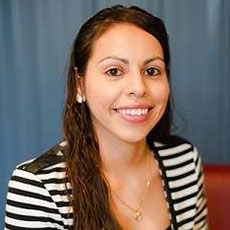WASHINGTON — Family immigrant detention was dealt a major blow last week in court, and critics are hoping to build on the ruling’s momentum to kill the practice entirely.
Immigration attorneys filed on Tuesday for multiple immigrant women and children to be immediately released from detention facilities without bond. In Washington, House Democrats held a forum on what they called internment camp-style facilities, featuring two formerly detained women and a former detention center social worker who alleged serious mistreatment of children, and attempts to cover up any problems.
For months, advocates have been increasingly pleading for the government to end or at least seriously limit detention of women and children seeking asylum, and the pressure, combined with court rulings, could eventually achieve that. But in the meantime, attorneys and other critics allege that mistreatment, confusion and dishonesty abound in family immigrant detention facilities.
U.S. District Court Judge Dolly Gee’s ruling on Friday said family detention violates the 1997 Flores Agreement, a settlement that governs the way the Department of Homeland Security handles undocumented children. It says undocumented children should be kept in the “least restrictive” environment possible and that DHS should generally adopt a “policy favoring release.”
House Democrats plan to send a letter urging the administration to drop its commitment to family immigrant detention in the wake of Gee’s ruling. House Judiciary Committee Chairman Bob Goodlatte (R-Va.), on the other hand, urged DHS to continue to fight to keep detaining women and children.
The agency has until Aug. 3 to respond to Gee.
DHS spokeswoman Marsha Catron said in a statement that they “are disappointed with the court’s decision and are reviewing it in consultation with the Department of Justice.”
The ruling has the potential to roll back the Obama administration’s expansion of family detention, which immigration officials implemented to deter an influx of about 68,0000 undocumented immigrant family units crossing into the United States from violence-plagued Honduras, El Salvador and Guatemala last fiscal year, many of them seeking asylum.
On Monday, immigration judges in Miami hearing family detention cases in Dilley, Texas, by cable link were already ordering ICE to release women and children detained there in light of the ruling. On Tuesday, the CARA pro bono project, a group that organizes volunteer attorneys to represent women and children in family detention, asked an immigration judge to release another seven women without bond in light of the ruling. The court filing also accused ICE of impeding the detainees’ access to lawyers and trying to oblige them to accept an ankle monitor as a condition for release, even though immigration judges had previously assigned the women bonds of $1,500 without the ankle monitor requirement.
Many of those women and children who fled violence in their home countries say they found a punishing atmosphere in the Dilley detention facility.
At the House Democrats’ forum, Sonia Hernández said she’d spent 315 days in detention after fleeing from gangs in El Salvador with her three children.
“When my kids were hungry, all they gave them was soup — instant ramen,” Hernández said, recalling the time she spent detained at Karnes County Residential Center, another family detention center in Texas. “One official told me his dog ate better than we did inside of detention. … There were two mothers who slit their wrists because they did not want to return to their country. One of them — a week after she slit her wrists — rather than take her to the hospital, they deported her.”
Another former detainee who spoke at the forum, Gladys Dubon-Chifas, spent 11 months in detention. While there, her daughter became ill and vomited blood. Despite requesting attention repeatedly, she said medics at the facility said to give her daughter water and her illness would pass. Eventually her daughter weakened to the point that she couldn’t walk, and she was rushed to a hospital.
“It was a very difficult situation,” Dubon-Chifas said. “I don’t want other mothers and children to go through what I went through.
The bleak vision was echoed by other detainee accounts compiled by attorneys with the CARA pro bono project.
One detainee said a painful tumor on her breast with yellow drainage has worsened since arriving in detention, but she never received pain medication. A woman and her child suffered respiratory infections for 10 days, and the only medical treatment they received was a recommendation to drink water. A woman with two children was told that if she continued to show signs of depression, her children would be taken away from her. The attorneys said they redacted the names of the detainees to protect their privacy.
Immigration and Customs Enforcement disputed the vision presented by atto
rneys, saying the agency was committed to providing health services to women and children in family detention.
“ICE takes very seriously the health, safety and welfare of those in our care,” ICE spokeswoman Gillian Christensen said in a statement emailed to HuffPost. “The agency is committed to ensuring that individuals housed in our family residential centers have care and resources.”
The agency has already begun to limit family detention somewhat, after a policy change implemented earlier this month to release most women and children if they were found to be eligible for asylum.
Link: www.huffingtonpost.com




